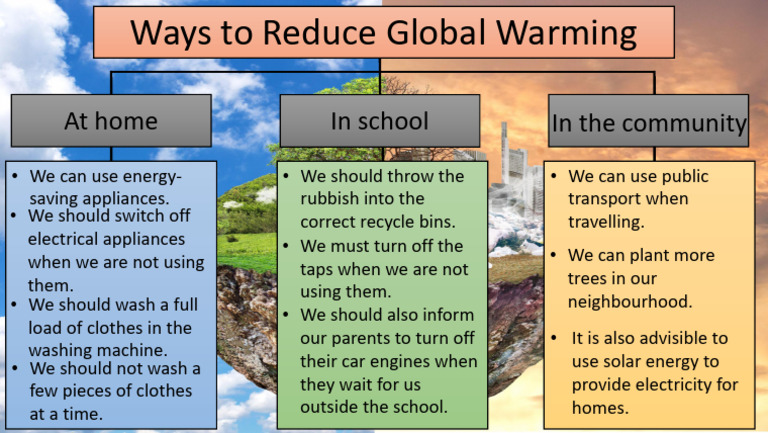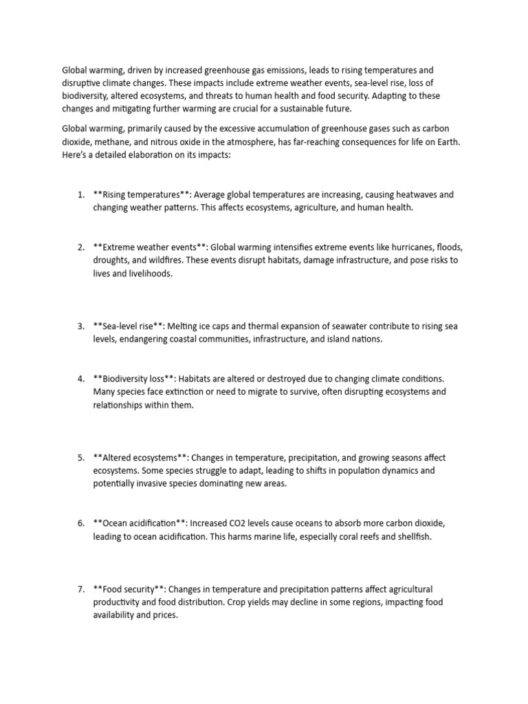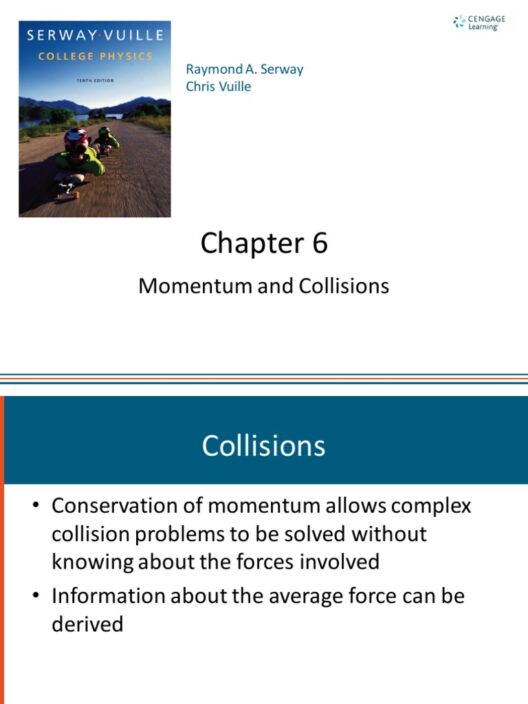Global warming represents one of the most pressing challenges of our times, a phenomenon fuelled predominantly by human activity. With the planet’s temperature rising due to greenhouse gas emissions, it is easy to feel overwhelmed. However, it is essential to recognize that each individual possesses the innate power to effect change. Every small action contributes to a collective effort, creating ripples that can lead to substantial progress. Here are several straightforward yet impactful ways the average person can actively participate in mitigating global warming.
1. Reduce, Reuse, Recycle
One of the foundational approaches to combating global warming lies in the principles of reducing, reusing, and recycling. First and foremost, reducing consumption minimizes waste and, consequently, lowers the energy demand needed for production processes. Simple decisions—such as purchasing products with minimal packaging or opting for biodegradable items—help diminish resource extraction and energy consumption. Reusing items prolongs their life cycle, therefore curbing the need for new manufacturing. Finally, participating in local recycling programs conserves critical resources and dramatically lessens landfill contributions, which are significant sources of methane emissions.
2. Embrace Energy Efficiency
Energy efficiency remains an underappreciated avenue for carbon footprint reduction. By utilizing energy-efficient appliances and technologies, individuals can drastically cut their energy consumption. Not only do Energy Star-rated appliances contribute to lower electricity bills, but they also lessen the overall demand for energy production, which is often heavily reliant on fossil fuels. Additionally, simple practices—like turning off lights when leaving a room, unplugging devices, and using natural lighting whenever feasible—can cumulatively lead to significant energy savings. Upgrading home insulation and opting for smart thermostats can also greatly enhance energy efficiency.
3. Opt for Sustainable Transportation
Transportation is a major contributor to greenhouse gas emissions. Individuals can mitigate this impact by embracing more sustainable modes of travel. Walking or biking not only reduces emissions but also promotes personal health. For longer distances, consider public transportation or carpooling with colleagues and friends. If driving is unavoidable, selecting fuel-efficient vehicles or hybrid electric models can significantly reduce carbon emissions. When feasible, traveling by train rather than flying can also provide an environmental advantage, as air travel significantly adds to one’s carbon footprint.
4. Adopt a Plant-Based Diet
The food we consume plays a pivotal role in global warming. The livestock industry is a considerable source of methane emissions and deforestation. Transitioning towards a plant-based diet, even partially, can significantly lessen an individual’s carbon footprint. Incorporating more vegetables, grains, and legumes while reducing meat and dairy consumption not only fosters better personal health but also diminishes land use and greenhouse gas emissions. Moreover, purchasing local and seasonal produce decreases transportation emissions and supports local economies.
5. Conserve Water
Water conservation is often overlooked in discussions about climate change, but it plays a crucial role. The process of treating and heating water is energy-intensive. Individuals can contribute by implementing simple measures, such as fixing leaks, using water-efficient fixtures, and practicing mindful water usage while showering or washing dishes. Collecting rainwater for gardening purposes is another effective way to conserve water and reduce the energy associated with water transport and treatment.
6. Engage in Community Initiatives
Joining or initiating community projects can amplify one’s impact on climate change. From community clean-ups to tree-planting initiatives, collaboration enhances the effectiveness of individual efforts. Supporting local environmental advocacy groups can also drive significant change at a larger scale. By fostering awareness and encouraging conversations about global warming within one’s community, individuals can inspire collective action and advocate for policies that promote sustainability.
7. Educate Yourself and Others
Understanding the complexities of climate change is vital for individual action. Engaging with literature, attending workshops, and participating in forums can enhance personal knowledge and empower effective conversations about global warming. By disseminating this information, individuals can influence friends and family, creating a network of informed advocates for the environment. Education serves not only to inform but to shape societal values and drive cultural shifts towards sustainability.
8. Support Renewable Energy
Transitioning to renewable energy sources is imperative for a sustainable future. Individuals can contribute by supporting policies that promote solar, wind, and other renewable energy solutions. If financially feasible, consider installing solar panels at home. Supporting companies that commit to sustainable practices and purchasing green energy from utility providers can also foster a shift towards a cleaner energy economy.
9. Vote for Change
Participating in the democratic process is crucial for fostering environmental policies. Supporting candidates and legislation that prioritize action on climate change can lead to systemic changes at local, national, and global levels. Engaging in dialogue with lawmakers and advocating for stronger environmental regulations creates accountability in leadership. Your vote is not just a voice; it is a powerful tool for change.
10. Cultivate an Eco-Conscious Mindset
Finally, embodying an eco-conscious mindset is vital. Recognizing the interconnectedness of human activity and environmental health fosters a deeper commitment to sustainability. This mindset influences everyday choices, from consuming less to advocating for systemic changes. Understanding that even minute actions can contribute to the greater good ultimately empowers individuals to drive forward the momentum needed to combat global warming.
In conclusion, while individual actions may seem trivial in the face of global warming, they hold the potential for considerable impact. By adopting sustainable habits, advocating for change, and inspiring others, the average person can contribute meaningfully to the fight against climate change. Embracing a proactive attitude towards environmental stewardship is not merely an option; it is our collective responsibility for the sake of future generations.








